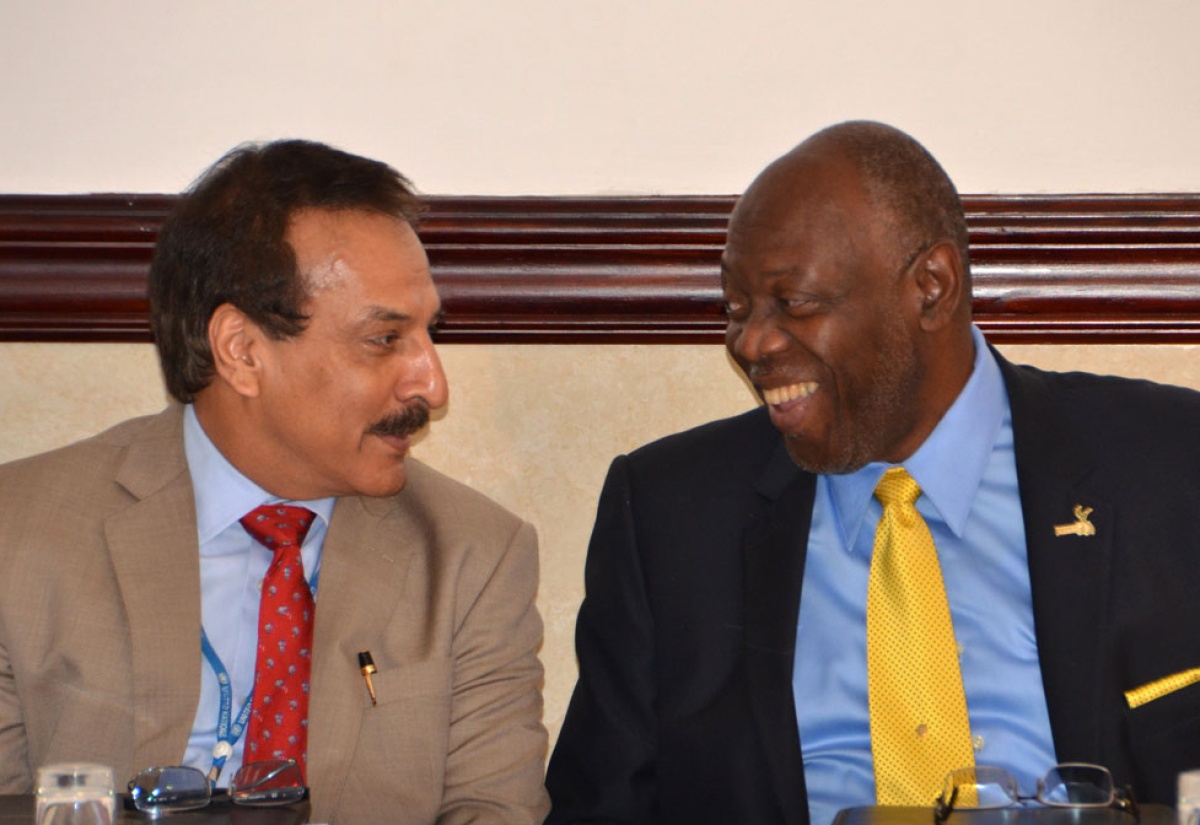NFPB/National HIV Programme Will Boost Response to Disease – Health Minister
By: , July 30, 2013The Key Point:
The Facts
- The move also addresses the issue of the absence of one clearly identifiable AIDS authority
- The newly formed body will have a broad based multi-sector mandate
The Full Story
Health Minister, Hon. Dr. Fenton Ferguson, says the recent integration of the National Family Planning Board (NFPB) and aspects of the National HIV Programme (NHP), aims to boost Jamaica’s response to the HIV/AIDS epidemic.
Addressing the opening ceremony of the Global Validation and Lessons Learned Workshop on Gender Equality in the Context of HIV/AIDS, held at the Jamaica Pegasus Hotel in New Kingston, on July 30, Dr. Ferguson said the move also addresses the issue of the absence of one clearly identifiable AIDS authority.
“We have joined together the two agencies charged with leading the response to HIV/AIDS and family planning issues and have implemented a ‘One Authority’ for sexual reproductive health, through the integration of the National Family Planning Board and some aspects of the National HIV Programme,” he said.
Dr. Ferguson noted that the newly formed body will have a broad based multi-sector mandate, to continue ensuring efficient and effective country-level response to HIV.
“The National Family Planning Board will now have legal status and a legal mandate to manage and co-ordinate the national programme. The policies of the NFPB and NHP are compatible as both organisations focus on safe and responsible sexual practices with HIV prevention and family planning as components of reproductive health,” he explained.
Dr. Ferguson also informed that the integrated organisation will give effect to one of the key strategies outlined in the Vision 2030 Jamaica National Development Plan, which is to “expand and improve integration of family planning, maternal and child health, sexual and reproductive health and HIV/AIDS into primary health care.”
This, he said, is all in line with a fundamental principle that guides Jamaica’s policy on sexual and reproductive health and the HIV response, which is the question of gender sensitivity.
“We have a new draft National Strategic Plan (NSP), that indicates our high level of commitment to strengthen gender responsiveness, and has definitely benefitted from gender assessment of the previous NSP,” he remarked.
In this vein, Dr. Ferguson said the global validation workshop is quite timely and is of great significance to Jamaica and its continued efforts in fighting HIV/AIDS.
The workshop, co-hosted by the Government of Jamaica and UN Women, is the culmination of the European Commission-UN Women global programme, Supporting Gender Equality in the Context of HIV/AIDS, implemented in five countries, namely Jamaica, Cambodia, Rwanda, Kenya and Papua New Guinea.
Over the course of four years, the programme has sought to strengthen national commitment and action for integrating gender equality and human rights into the HIV response, while simultaneously advancing the leadership and participation of women living with HIV and their networks within that response.
Dr. Ferguson pointed out that the gender mainstreaming efforts undertaken by the project, through integration into the country’s 2012-2017 National Strategic Plan for HIV, indicates Jamaica’s high level of commitment to strengthen the gender responsiveness of its HIV prevention, treatment, care and support programmes.
He noted that gender mainstreaming remains critical to guaranteeing women and men equitable access to programmes, but it is important that “we recognise the disproportionate impact of the epidemic on our women and girls and the barriers to their access to services.”


